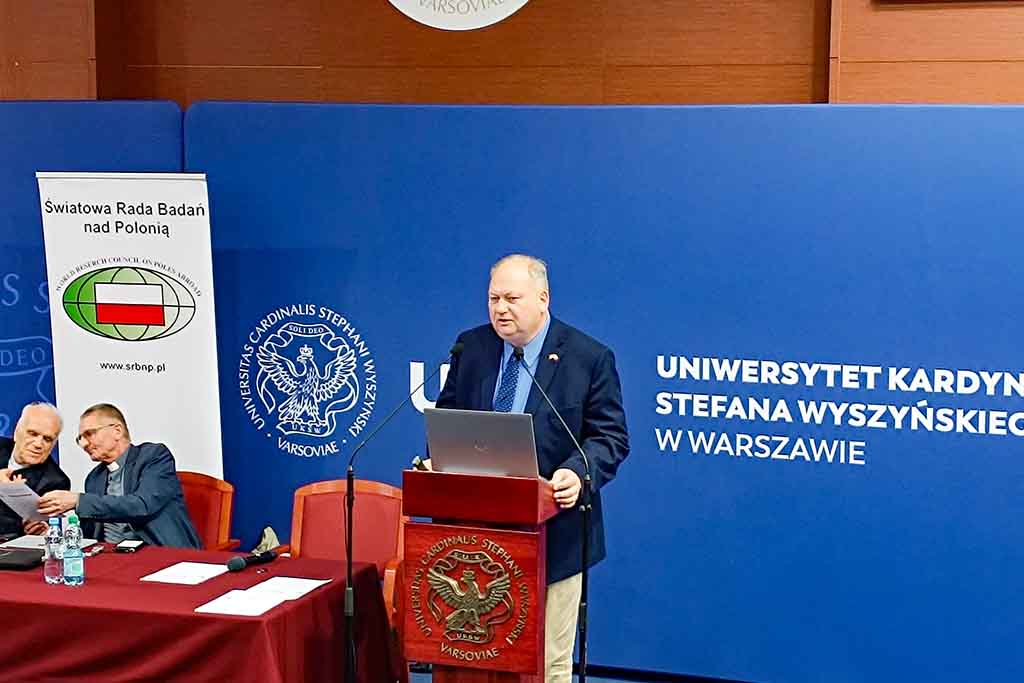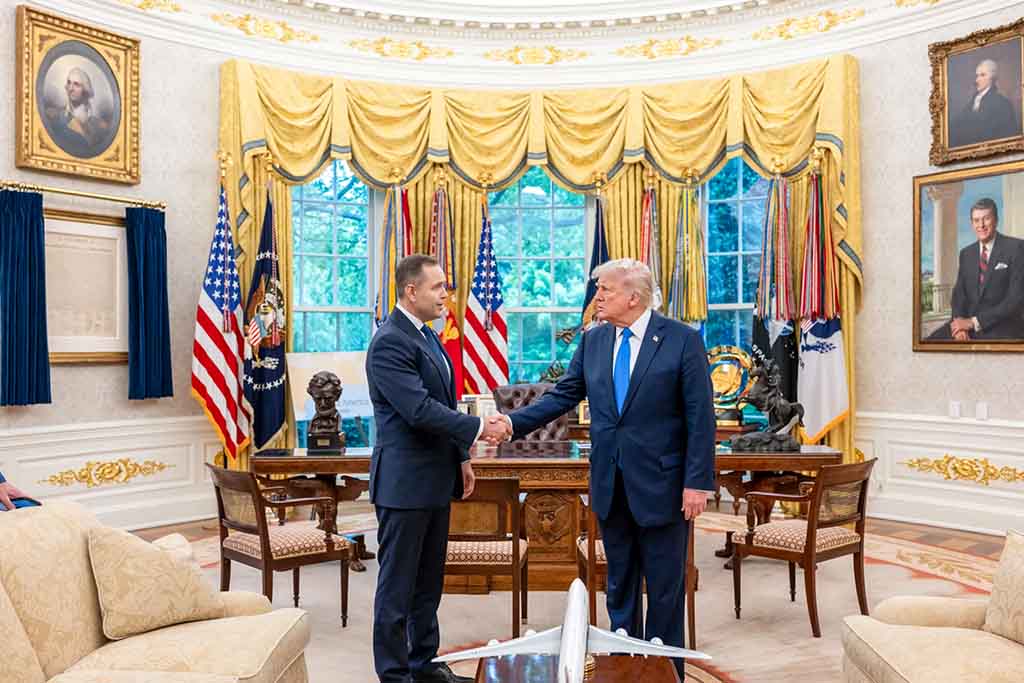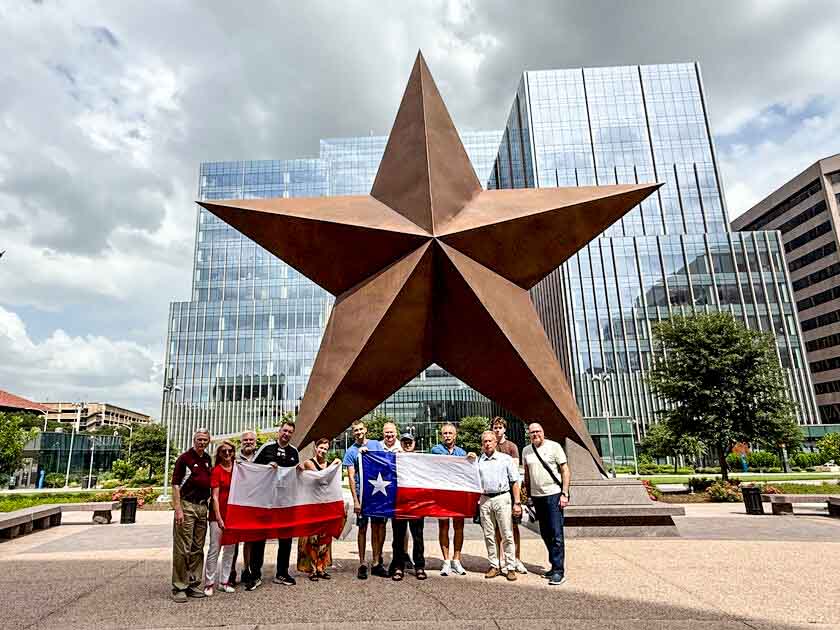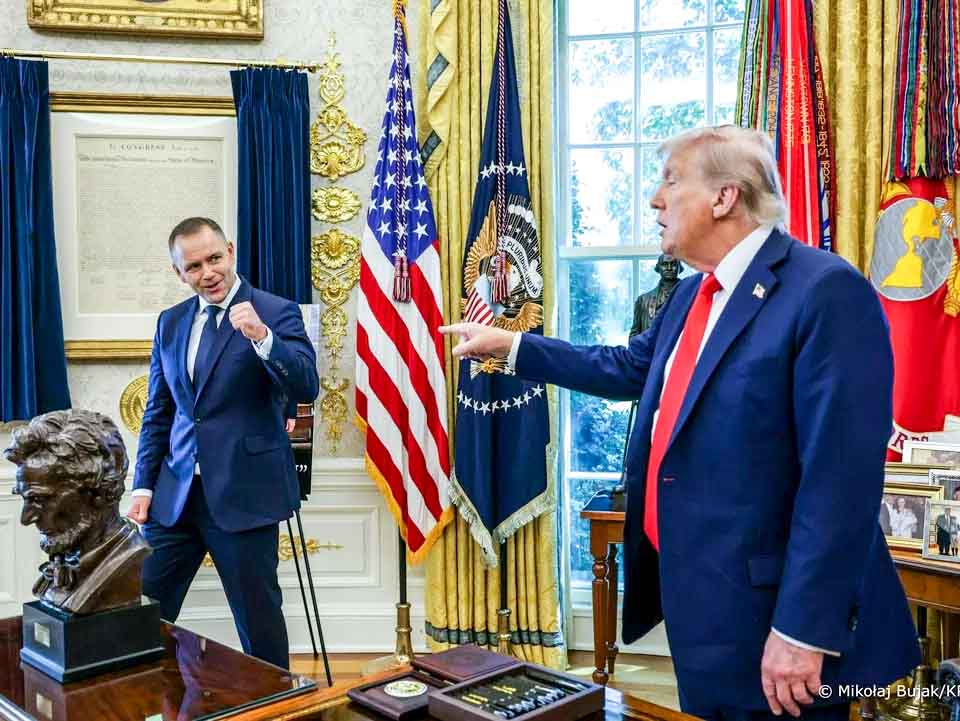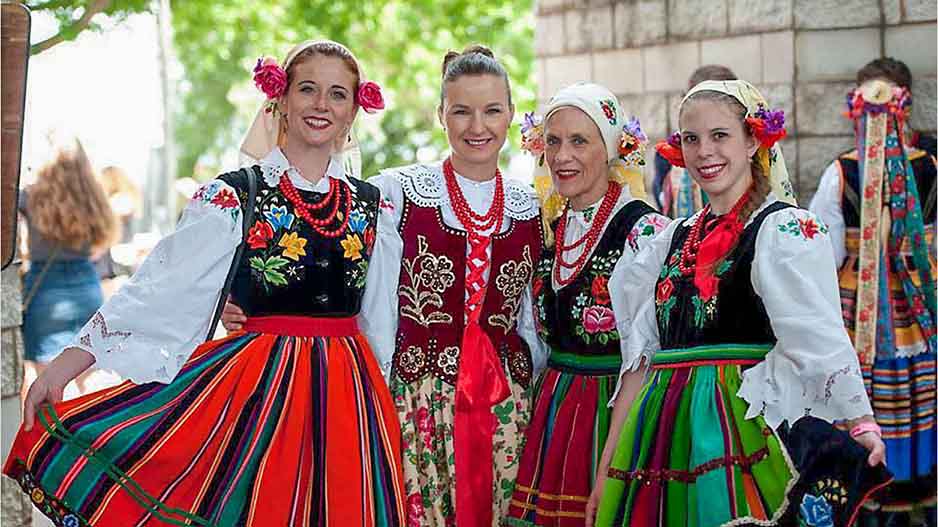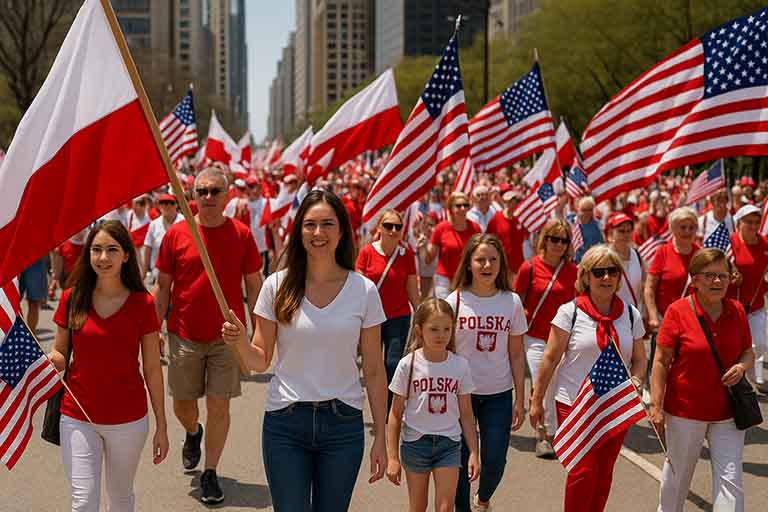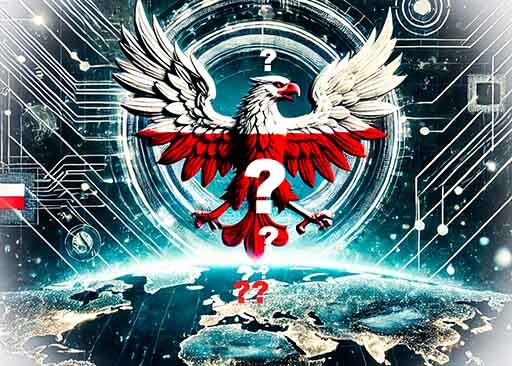This new chapter presents extraordinary opportunities in geopolitics, and secondly, the real integration of the Polish diaspora into the country's public life. The Polish diaspora, which for decades has remained on the margins of national debate, possesses enormous potential, both human and financial, especially here in the United States.
A prime example of the omission of the Polish diaspora is the recent presidential debate, in which neither candidate even mentioned the over 20 million members of the Polish diaspora. Building such a new political system requires deep faith in Poland and in all Poles around the world—from "Chicago to Tobolsk."
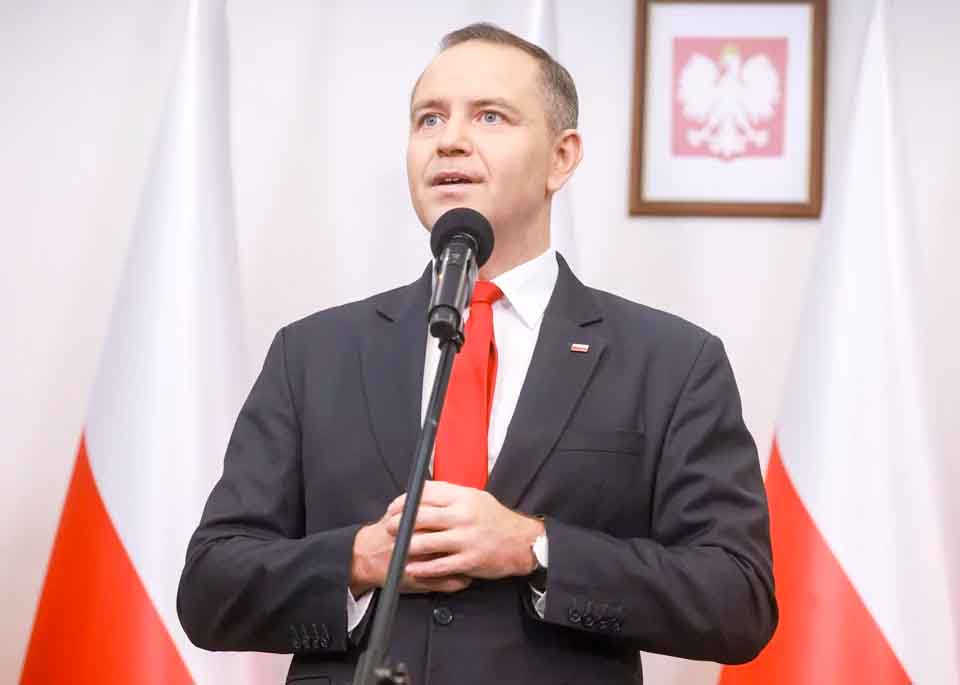
President Karol Nawrocki (Photo: Leszek Szymański) (Source: PAP)
Today, when a real opportunity arises to restore Polonia to its rightful place, we must seize this opportunity. It's time to end Magdalenka's contracts. It's time to open Poland to people who don't have communist connections but who possess the energy, skills, know-how, knowledge, and are loyal to the Republic. It's crucial to cut through this Magdalenka and Round Table corset that—like an invisible wall—blocks the path to the Pax Polonica restoration.
Pax Polonica
Over 100 years ago, in his book "Thoughts of a Modern Pole," Roman Dmowski defined Pax Polonica in a simple, concise way: "I am a Pole, therefore I have Polish responsibilities. (...) Everyone has the duty to be an active citizen, aware of the state of political affairs in their country and influencing them to the best of their ability. Everyone is responsible for the course of these affairs."
The dynamics of global geopolitical processes today compel us Poles to redefine our raison d'état. There is no doubt that it will continue to be understood as non-partisan action, in the name of the Republic, to advance the overarching interest of the Polish state, shared by many past and present generations of compatriots at home and abroad. The constituent elements of Pax Polonica will remain: independence, sovereignty, and the integrity of the national community through uniting Poles in Poland with Polish emigrants into a coherent and mutually understanding whole.
Polish diaspora abroad
Approximately 20 million people of Polish descent live outside Poland. These are people who emigrated or were born outside of Poland but declare a strong attachment to their Polish origins and ties to Polishness.
According to the Polish & Slavic Credit Union, the financial resources of the Polish American community average $17,500 in savings per person. And these are just the savings of a select group of 100,000 Poles in the New York, New Jersey, and Chicago areas. Multiply these amounts to arrive at a staggering $1,750,000,000. Remember, the entire Polish diaspora in the United States numbers approximately 10 million people.
Every year, the Polish diaspora in the United States—not to mention those in other countries—sends approximately $900 million to Poland (World Bank data, compiled by the Migration Policy Institute). This amount is comparable to that invested by foreign companies in Poland. Preliminary estimates indicate that in the United States alone, there are over 800 Polish scientists at the "tenure" level. This is a significant group of people with enormous intellectual potential that should not be underestimated.
Recommendations from the Polonia
The Polish diaspora constitutes one-third of the national community living outside Poland.
It's time to incorporate into the Constitution the fact that approximately 60 million Poles live worldwide, of whom approximately 20 million are Poles and citizens of Polish descent. They should finally be recognized as an integral, independent, and valuable part of the Polish nation. It's time to break with the Magdalenka agreements, which resulted, among other things, in barring representatives of patriotic, independence-oriented, and Polish emigration groups from power.Creating political representation for the Polish diaspora
Poles abroad must regain full civil rights. It is essential to reinstate postal voting and create a special constituency for the Polish diaspora, allowing Poles living abroad to elect their representatives to the Sejm and Senate. Their voices must be heard and represented in the Polish parliament.An expert center for the Polish diaspora at the Chancellery of the President
Building "soft power" and a global Polish strategic network by connecting Poles at home with the diaspora is a prerequisite for Poland's success in international relations. Its activities should include the creation of mixed Polish-Polonia expert groups in key areas (energy, security, technology, medicine, military). This center should train Polish diaspora leaders. Creation and development of an investment project for the Polish diaspora, enabling them to invest in Poland—the "Diaspora Investment Initiative."Modern Diaspora Policy
Not just "from the sea to the Tatra Mountains," but—as master Jan Pietrzak sings—"from Chicago to Tobolsk." We need an active system of support for the Polish diaspora in every consular district and a modern diaspora policy. Consulates must become nonpartisan centers of Polish diaspora life—active, open, educating, and building a global national community through an "outreach" system—activating the Polish diaspora in their places of residence. Easier passport acquisition for children born abroad, expanding consular duties to other centers, intensifying the issuance of Polish Cards, and a real repatriation and return policy.Educational offerings
95% of the Polish diaspora in the US does not speak Polish. We need attractive educational, media, and cultural offerings that extend to American universities, not be confined to church classrooms. Promoting student exchange and supporting the study of Polish language, history, science, and economics within international universities. Organizing an annual Polonia–Poland Strategic Forum in a major diaspora center. Establishing a World Congress of Polish Diaspora under the patronage of the President of the Republic of Poland as an institution promoting Polish interests worldwide.The Polish Diaspora in Poland's History
The Polonia co-created Independence. Since 1989, no popular science book on the history and role of the Polish diaspora has been published in Poland. It's time for this truth to penetrate the common consciousness of Poles. Our Polish diaspora heroes deserve respect and remembrance. It's time for "Hey, White Eagle"—a song composed in 1917 by Ignacy Jan Paderewski, as the battle anthem of the Polish Army in France, known as the Blue Army—to be sung alongside the "First Brigade" at independence ceremonies.
Conclusions
It remains an open question what methods we will use to restore Pax Polonica, and whether at some point the temptation to move toward another utopia, defined as post-politics and post-truth, will prevail, as in the West, overriding the universal values of our civilization. So let's discuss, organize, and create think tanks from scratch. Let's replace the temptation of artificially maintained unanimity with broad, substantive dispute and unfettered debate about Poland's most important current interests, but also about matters of the future.
For Poland to continue to develop, we need to end the Polish-Polish war that paralyzes any forward movement, end the policy of handing out taxpayers' money, and replace the current elites with elites loyal to our raison d'état.
Most analyses suggest that the state's governance system is inefficient. Therefore, the constitution should be amended to be clear, simple, and concretely present the way the state is governed. It is essential to de-partisanize the state and eliminate unnecessary bureaucracy, which stifles Poles' creativity.
If we Poles do not engage in such a debate today, others will certainly do so – and such attempts are already visible, but from the perspective of pursuing foreign interests, defining new spheres of influence and areas of dependence. And this is precisely the opportunity we Poles must recognize; the restoration of Pax Polonica must take place. The era of the Tehran-Yalta order is over.







